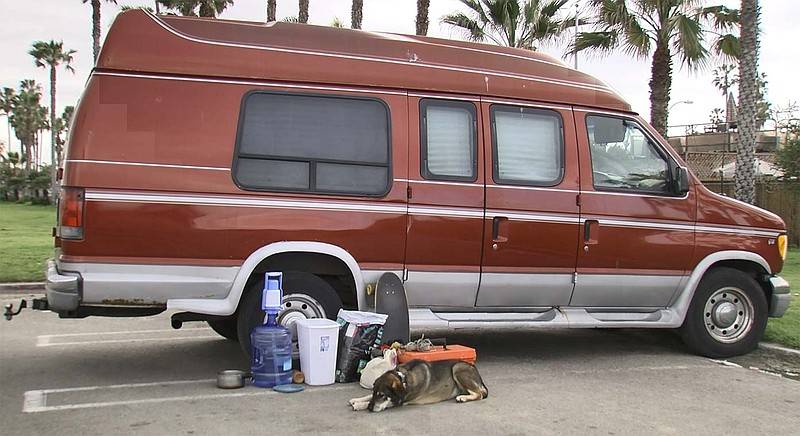The San Diego City Council on Tuesday passed an ordinance that criminalizes living or sleeping in vehicles overnight as the city grapples with the challenges posed by having the nation’s fourth-largest homeless population.
The new law bars people from sleeping in their cars between 9 p.m. and 6 a.m., or at any time within 500 feet of a home or school. The ordinance considers residents to be living in their vehicle if they use it for things like sleeping, bathing or preparing meals.
San Diego’s previous “vehicle habitation” ordinance, which had been in effect since 1983, was deemed “too board” by a federal judge last year and an injunction was issued preventing the city from enforcing it.

